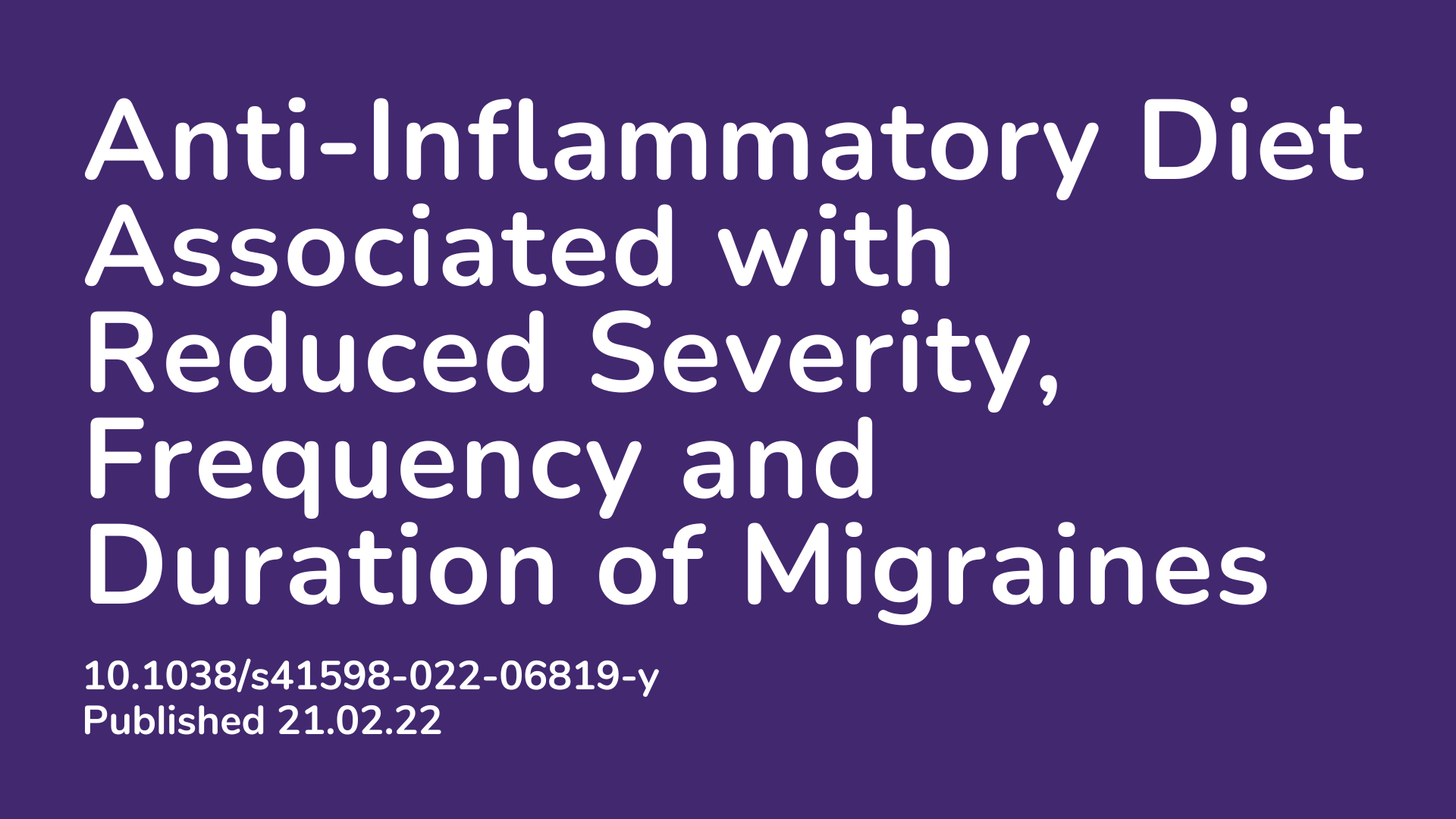Summary: Migraine is a neurological disorder characterised by repeated episodes of mild to severe headaches, often accompanied by nausea and vomiting. The etiology and pathophysiology of migraine is not fully understood, however literature has indicated that the cause of migraines could be composed of both environmental (diet, exercise etc) and genetic factors. Some studies have also suggested that a migraine is significantly associated with systemic inflammation and oxidative stress. It is well known that a healthy diet plays a significant role in the modulation of inflammation and therefore the authors of this paper assessed whether there is a relationship between inflammatory foods and migraine characteristics. The authors characterised migraines by duration, frequency and severity of the headaches. A questionnaire with 168 food items was used to evaluate dietary intake, which covered foods groups such as carbohydrates, protein, fats including Omega-3’s and 6’s, cholesterol, fibre, trans fatty acids, vitamins A, B, C, D, and E and many minerals. An increase in migraine headache was observed when the inflammatory food score increased. The authors also found evidence that adherence to a diet with anti-inflammatory food items was significantly related to reduced headache frequency.
Abstract:
Despite a large body of literature on the association between the dietary inflammatory index (DII) and various chronic diseases, limited knowledge is available regarding the association between DII and migraine. Therefore, we assessed the relationship between the DII and migraine characteristics, including duration, frequency, and severity of migraine headaches, Headache Impact Test-6 (HIT-6), and serum levels of nitric oxide (NO). This population-based cross-sectional study was conducted from August 2019 to June 2020 among 262 patients (38 men and 224 women; 20–50 years). A 168-item semiquantitative food frequency questionnaire (FFQ) was gathered to evaluate dietary intake, and subsequently, an energy-adjusted DII score was calculated. After controlling for potential confounders, an increase of 3.48 in headache frequency was observed when the DII score increased from − 4.04 to − 1.83 (β = 3.48; 95% CI 1.43, 5.54). In the crude model, headache duration tended to be inversely associated with DII in the subjects with the pro-inflammatory diet compared to those with the anti-inflammatory diet (β = − 0.22; 95% CI − 0.46, 0.02). After adjustment for confounders, those with the highest DII values were at a higher risk of severe headaches than those with the lowest values (OR = 2.25; 95% CI 1.17, 4.32). No other significant results were found in terms of the association between DII and HIT-6 or serum NO levels. We found evidence suggesting that higher adherence to a diet with anti-inflammatory properties was significantly and inversely related to headache frequency. Furthermore, our results suggest that the DII score is substantially related to migraine severity.
Article Publication Date: 21.02.22
DOI: 10.1038/s41598-022-06819-y



